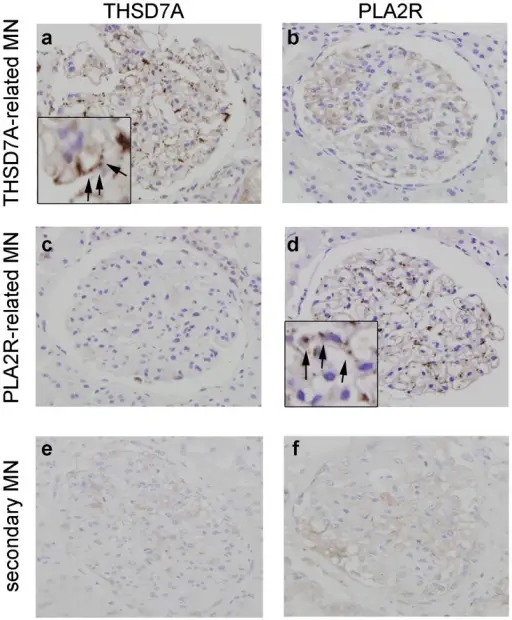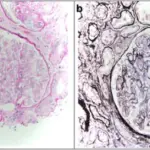Membranous nephropathy is a disease of the small blood vessels of the kidney which helps in the filtering of the waste products from the blood.
What is the Pathology of Membranous Nephropathy?
The pathology of membranous nephropathy is the study of the disease that affects the small vessels of the kidney.
-Etiology: The cause of membranous nephropathy is an autoimmune disease, infection, medication e.g. NSAIDS, malignancies e.g. solid cancerous tumor.
-Genes involved: PLA2R1 gene.
-Pathogenesis: The sequence of events that lead to membranous nephropathy is the formation of the immune complexes in the small blood vessels of the kidney in between the podocytes and the glomerular basement membrane that hinders the normal functioning leading to the disease.
-Morphology: The morphology associated with membranous nephropathy shows diffuse thickening of the capillary walls.
-Histology: The histology associated with membranous nephropathy shows hyaline droplets on the proximal convoluted tubules, narrow capillary lumina.
How does Membranous Nephropathy Present?
Patients with membranous nephropathy typically are males present at the age range of more than 50. The symptoms, features, and clinical findings associated with membranous nephropathy include edema, proteinuria, weight gain, fatigue, poor appetite, foamy urine, bloody urine.
How is Membranous Nephropathy Diagnosed?
Membranous nephropathy is diagnosed with routine urine tests, symptoms presenting, blood tests, glomerular filtration rate, antinuclear antibody tests, kidney ultrasound, kidney biopsy.
How is Membranous Nephropathy Treated?
Membranous nephropathy is treated by managing the symptoms as the present, removal of the cause.
What is the Prognosis of Membranous Nephropathy?
The prognosis of membranous nephropathy is good due to full remission after proper management.



